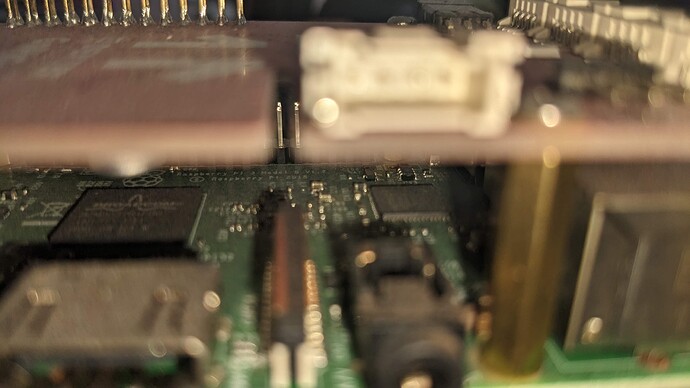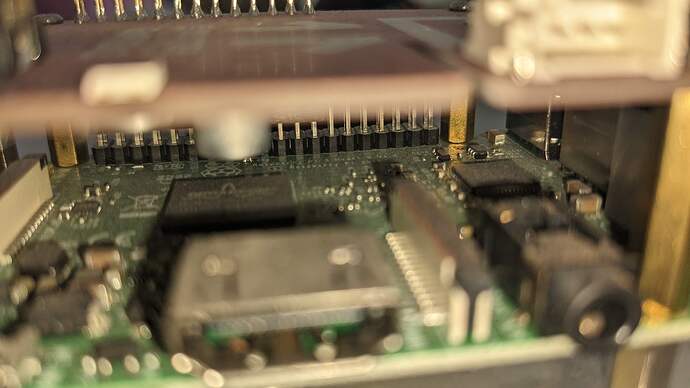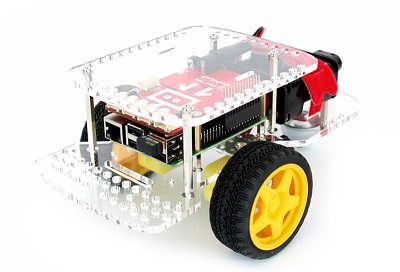Please help me, I’m about to give up and throw this thing out the window after spending tens if not hundreds of hours trying to get it to execute even a simple script.
Here’s my script:
$ cat test_01.py
from easygopigo3 import EasyGoPiGo3 # importing the EasyGoPiGo3 class
gpg = EasyGoPiGo3() # instantiating a EasyGoPiGo3 object
Not even a script, just trying to import a library.
I tried running it:
$ python test_01.py
Traceback (most recent call last):
File "test_01.py", line 1, in <module>
from easygopigo3 import EasyGoPiGo3 # importing the EasyGoPiGo3 class
File "/home/pi/.local/lib/python3.7/site-packages/gopigo3-1.3.2.1-py3.7.egg/easygopigo3.py", line 13, in <module>
File "/home/pi/.local/lib/python3.7/site-packages/gopigo3-1.3.2.1-py3.7.egg/easysensors.py", line 1, in <module>
ModuleNotFoundError: No module named 'I2C_mutex'
I spent hours and hours looking for solutions online.
Here’s the version:
$ pip freeze | grep gopigo3
gopigo3==1.3.2.1
Based on this thread: No module named I2C_mutex - #12 by anitatech
I tried:
$ sudo apt-get install -y build-essential libi2c-dev i2c-tools python-dev python3-dev python-setuptools python3-setuptools python-pip python3-pip libffi-dev
Reading package lists... Done
Building dependency tree
Reading state information... Done
build-essential is already the newest version (12.6).
i2c-tools is already the newest version (4.1-1).
libffi-dev is already the newest version (3.2.1-9).
libi2c-dev is already the newest version (4.1-1).
python-dev is already the newest version (2.7.16-1).
python-setuptools is already the newest version (40.8.0-1).
python3-dev is already the newest version (3.7.3-1).
python3-setuptools is already the newest version (40.8.0-1).
python-pip is already the newest version (18.1-5+rpt1).
python3-pip is already the newest version (18.1-5+rpt1).
0 upgraded, 0 newly installed, 0 to remove and 2 not upgraded.
and
$ cd /home/pi/Dexter/lib/Dexter
$ git clone https://github.com/DexterInd/RFR_Tools
Cloning into 'RFR_Tools'...
fatal: unable to access 'https://github.com/DexterInd/RFR_Tools/': Failed to connect to github.com port 443: Connection refused
and
$ sudo curl -kL dexterindustries.com/update_tools | sudo bash
% Total % Received % Xferd Average Speed Time Time Time Current
Dload Upload Total Spent Left Speed
100 243 100 243 0 0 3037 0 --:--:-- --:--:-- --:--:-- 3075
100 37894 100 37894 0 bash: line 2: syntax error near unexpected token `newline'
0bash: line 2: `<!DOCTYPE html>'
229k 0 --:--:-- --:--:-- --:--:-- 229k
copy pasted https://raw.githubusercontent.com/DexterInd/script_tools/master/install_script_tools.sh to local file
$ chmod a+x install_script_tools.sh
$ ./install_script_tools.sh
fatal: unable to access 'https://github.com/DexterInd/script_tools.git/': Failed to connect to github.com port 443: Connection refused
./install_script_tools.sh: line 62: cd: /home/pi/Dexter/lib/Dexter/script_tools: No such file or directory
fatal: not a git repository (or any of the parent directories): .git
I copied manually the install script repo, but now if I try to run my simple script again:
$ ./test_01.py
from: can't read /var/mail/easygopigo3
./test_01.py: line 2: syntax error near unexpected token `('
./test_01.py: line 2: `gpg = EasyGoPiGo3() # instantiating a EasyGoPiGo3 object'
Here’s the log.txt from the robot, I got it via VNC:
GoPiGo3 Troubleshooting Script log
Checking for hardware, and checking hardware and firmware version.
Manufacturer : Dexter Industries
Board : GoPiGo3
Serial Number : 95758CA9514E4C47324B2020FF040222
Hardware version: 3.x.x
Firmware version: 1.0.0
Battery voltage : 8.943
5v voltage : 5.171
PLEASE !!!
HELP !!!
Thank you in advance.


